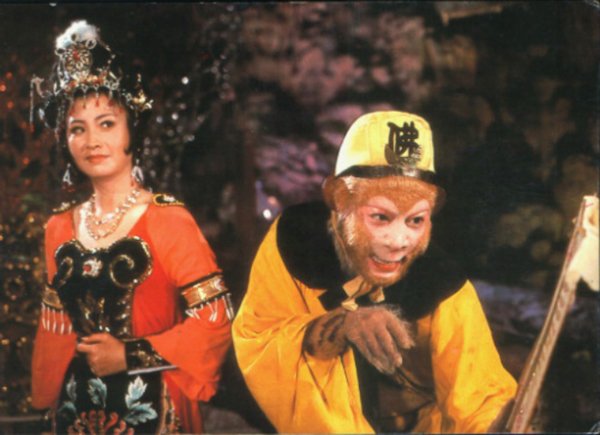Complex life on our planet has existed for at least 400 million years, while primordial life has existed on this planet for more than 3.5 billion years.
That leaves more than 3 billion pre-human years unaccounted for – a far too long a time span for the rise and fall of not one but several pre-human industrial civilizations that may have once been

Life has existed on this planet for more than 3.5 billion years.
What if an earlier (pre-human) industrial civilization existed on Earth millions of years ago?
This is the crux of the Silurian Hypothesis, a fascinating thought experiment that emerged in a study published in 2018 in the International Journal of Biology.
In the British science fiction television series produced by the BBC called `Doctor Who`, an alien species called Silurians exists – these are technologically advanced humanoid reptiles that live very
The possibility of life elsewhere in the universe and its parallels with the Anthropocene – the current geological epoch in which humans have impacted the Earth to the point of no return – have long been questioned.
“Could any civilization that reaches our level of energy use trigger their own version of climate change?
With this train of thought in mind, Professor Adam Frank went to NASA’s Goddard Institute for Space Science (GISS), a high-end climate science facility at Columbia University, New York, USA, and shared his thoughts.
“I went to meet Professor Gavin A. Schmidt (a climatologist and Director of GISS), and started talking about geological history millions of years ago” – Professor Adam Frank said excitedly.
SEARCH IN THE EARTH’S GEOLOGICAL RECORDS
Homo sapiens (smart humans, modern humans) first appeared on Earth about 300,000 years ago.
The question, whether there was a pre-human civilization or not, made the two professors decide to search for evidence in the period from 4 million years ago to 400 million years ago.
Going back hundreds of millions of years to find traces of a potential pre-Homo Sapiens civilization is not easy.

Earth’s history through many periods.
“After a few million years, the Earth was regenerated quite a bit.
“You would have to look at each layer of rock, then try and detect trends — looking for changes in things like carbon or oxygen isotopes.
Professors Schmidt and Frank are fascinated by the period of geologic history known as the Paleocene-Eocene Thermal Maximum (PETM), because something strange happened on our planet,
They investigated the carbon and oxygen isotope ratios from the PETM and indeed saw a spike, but they also saw a decrease in temperature, and all of this over a few hundred thousand years, which is nowhere near the carbon rate.
Professor Frank says the chemical differences of the PETM point to long-term climate change.
They also looked at other `sudden events` throughout visible time in the geological record, including ocean anoxic events – when the ocean becomes depleted of oxygen – and extinction events.
Not surprisingly, they are also not indicative of an industrial civilization.
APPLYING THE PHILOSOPHICAL THEORY ‘OCKHAM’S RAZOR’
In 1324, English theologian William of Ockham proposed a famous philosophical theory called “Ockham’s Razor,” which implied that if a scientific problem is explained with the fewest hypotheses, it becomes
“The hypothesis that Earth may have harbored long-extinct industrial civilizations and that their existence may be recorded in the geological record in association with signs of climate change is intriguing.
In the 14th century, the English Franciscan philosopher and theologian William of Ockham proposed that the most feasible solution to a problem is the simplest one.
“That is very likely the case here,” Associate Professor Stephen Holler said.
However, if a previous industrial civilization did exist and its extinction was the result of catastrophic climate change due to industrial activities, then we should heed the warnings by
The Silurian Hypothesis says: The more sustainable a society is in the way it generates energy and produces resources – that is to say, the more advanced a society is – the smaller the footprint it leaves on the planet.

Illustrative photo: Internet
However, these traces are likely to translate into some of the key points on the geological record of the period.
(Our society produces 300 million tons of plastic every year worldwide – roughly equivalent to the weight of the entire population!).
Or, even if we wiped out the face of the Earth in a nuclear disaster, long-lived radioactive particles would remain in the soil for tens/hundreds of years afterward, signaling that we existed.
Professor Adam Frank said: “With the Silurian hypothesis, we have highlighted the types of signals that our civilization would leave behind if we disappeared and someone would look for our civilization in
But above all, the two professors’ experiment demonstrated certain shortcomings in our current scientific apparatus.
Professor Frank explains: “In cases where a species’ previous industrial activity was particularly short-lived, we will not be able to detect it in ancient sediments with the tools and methods that we have
Remember, we are talking about millions of years of evolution of complex life.
And while neither Professor Frank nor Schmidt actually believes that an industrial civilization existed before our own, the main takeaway of the Silurian Hypothesis, Professor Frank says, is that if you’re not clear
According to the Silurian Hypothesis, not pyramids, not skyscrapers, not Styrofoam, not Shakespeare – in the end, we will only be known by a change in the rock, marking the beginning of
The article uses sources: Popularmechanics, Iflscience


